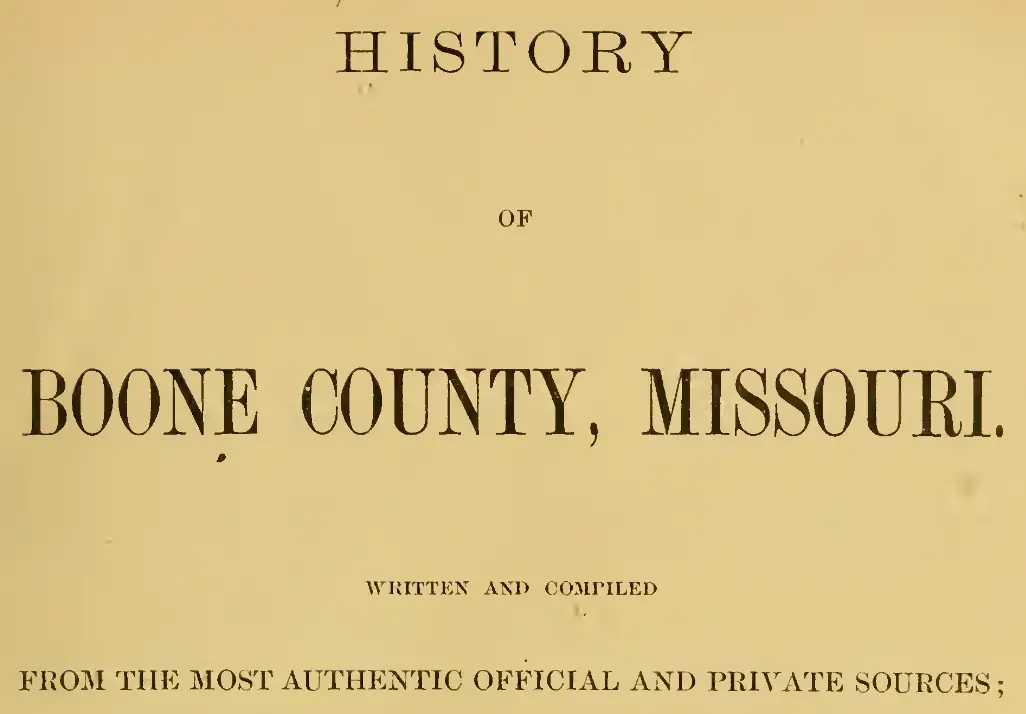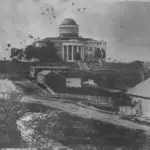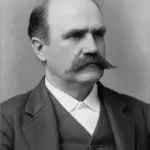Within the History of Boone County, Missouri 1882, partially credited to Col. William F. Switzler and others, there are several references to J.M. Proctor that provide a bit more color and generally aligns with other historical findings.
Libary of Congress link: https://www.loc.gov/item/rc01001356/
pg: 571
The broom factory of S. A. Fretwell is quite an institution of its kind. It was established in 1878. It has a capacity for turning out thirty dozen of well-made brooms in a day.. Brooms and brushes both are manufactured, the latter made of jute, which is imported for the purpose. Mr. Fretwell sells his wares in Columbia, Fulton, Mex-ico, and along the Wabash, St. Louis and Pacific Kailway as far north as Ottumwa, Iowa. He also supplies the railway with brooms aiid brushes. The broom-corn nsed is mostly grown in Boone, Callaway, and Audrain counties. This section of Missouri is well adapted for the cultivation of broom-corn. Mr. Fretwell employs five workmen. The shipping of railroad ties is a considerable industry in Stur-geon. The county, south and west, produces great numbers of them, and the average shipment is about 1,000 a day, or 300,000 in a year. This has been an active business for fifteen or twenty years last past.
Mr. J. M. Proctor has one of the largest and best orchards in Cen-tral Missouri on his premises in the north part of Sturgeon, just out-side of town. The orchard comprises an area of six or seven acres, and contains 600 apple trees, 400 peach trees, 150 pears, 50 apricots and nectarines, 5,000 straAvberries, besides raspberries, plums, cher-ries, and other fruits in great abundance. Kawle’s Janet is considered the best apple for all purposes, being especially the most reliable bearer ; Ben Davis and the Northern Spy come next. The Ben Davis is the most valuable for shipping. St. Louis is the best apple market for this section of Missouri. Mr. Proctor has also a fine fish pond, an acre and a half in extent, stocked with the best varieties of fish, such as perch, land-locked and California salmon, buffalo and cat. The pond furnishes Mr. Proctor with all of the best quality of fish food that he desires. It was made in 1876, and cost about $1,000. It also furnishes about 100 tons of ice per year, besides abundant water for stock.
Maj. John F. Rucker is about to undertake the erection of a town hall, 50×60 feet in size, which will be a much appreciated institution when completed, according to the specifications made.
pg:603-604
J. M. Proctor, one of the most prominent and successful business men in his section of country, was born in Macon county, Missouri, February 12th, 1842. He first came to Boone county in 1849, re-maining about four years, during which time he was engaged in farm-ing out in the “white oaks.” Returning to Bloomington, Macon county, he learned the tinner’s trade. He remained at Bloomington until 1860, when he removed to Mexico, Missouri, where he remained during the war, except for a few weeks spent in campaigning with Col. Porter ; was in the fight at Monroe Station, the first battle of the war fought on Missouri soil. He was also at Moore’s Mill and Florida. Mr. Proctor is the sou of Dr. William H. and Sophronia {nee Maughs) Proctor. His mother is a sister of Dr. J. M. B. Maughs, of St. Louis, and Mordecai Maughs, of Callaway county. He was married January 20th, 1864, to Miss Ella, daughter of William White, a Methodist minister, of Mexico. They have five children : Finnie, Laura Belle, Willie Patton, John Henry and Edna Clay. After his marriage he removed to Sturgeon, where he has fteen actively engaged in farming and trading ever since. He is a self-made man, having had no advantages save those he created for himself. He went to school in the woods, the school-house being made of unhewn timber, the fire-place occupying an entire end of the rude cabin When he returned to Bloomington, he went one term to the High School, finishing his education while learning his trade. After working all day he usually spent about half the night studying. He labored after working hours to procure money to buy books. He read law for two years and was anxious to enter upon the duties of that profession but had not the means to do so. Mr. and Mrs. Proctor, and all their children except one, are members of the Methodist Church South. He was a candi-date before the Democratic convention for the State Senate in 1880, but was beaten by Hon. James L. Stephens, of Columbia. He is of Scotch origin, on his father’s side. His mother was of French ex-traction. He has accumulated considerable property, and is doing a profitable business. He is one of the largest dealers in railroad ties in the State. He is true to his convictions, fair in his dealings, and earnest and sincere in the discharge of duty. Mr. Proctor was nomi-nated at the Democratic primaries in August, 1882, as a candidate for representative, defeating a strong competitor, Capt. J. W. Kneisley, in every voting precinct in the county but one.




